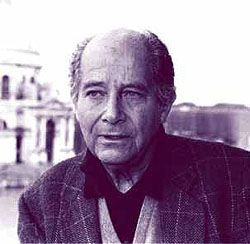 In the week that saw Orhan Pamuk win the Nobel for literature - for his melancholy threading of East and West lanes etc., - news comes of the death of arguably the greatest political film-maker yet to live and work: Gillo Pontecorvo (pictured).
In the week that saw Orhan Pamuk win the Nobel for literature - for his melancholy threading of East and West lanes etc., - news comes of the death of arguably the greatest political film-maker yet to live and work: Gillo Pontecorvo (pictured).His 40-year-old film, The Battle of Algiers (1966), is so real, so fully realized, and so subtle, that one forgets it is a movie - and yet, its superb suspense and dramatic structure, not to mention the cinemotography, acting, and extraordinary score by Ennio Morricone, make it one of the most powerful films ever made, and, as Edward Said has said, one of the two best political films - the other also by Pontecorvo.
Its resonance is especially noteworthy in our times, which once again turn to consider the issues of colonialism, The West in foreign lands, and the clash of religions, of power and weakness, of violence and resistance, of terror and hope.
http://film.guardian.co.uk/Century_Of_Films/Story/0,4135,345300,00.html
Comments